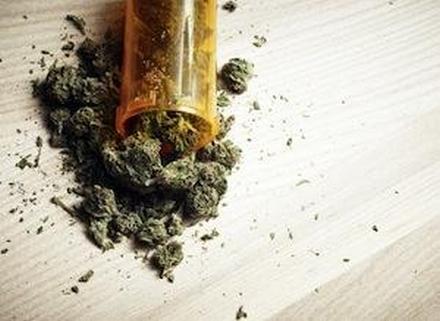TELEPHONES ANSWERED 24 HOURS A DAY
With Medical Marijuana Available for Purchase in Illinois, Will Underage Abuse Rise?
 With the recent opening of a few medical marijuana dispensaries in Illinois, some concerned citizens and substance abuse experts are worried. Will more easily accessed pot lead to abuse by children and teens?
With the recent opening of a few medical marijuana dispensaries in Illinois, some concerned citizens and substance abuse experts are worried. Will more easily accessed pot lead to abuse by children and teens?
Some say yes, and argue that as public perceptions on the drug change, and more dispensaries open across the state, young people will be more inclined to find, consume, and abuse marijuana. Marijuana use and abuse can have serious, lasting impacts on children, so experts have reason to be concerned. As the drug becomes more readily available across the state, for medical use only, are Illinois youth at risk?
Young people are especially susceptible to the dangers of marijuana abuse. THC, the mind altering substance within marijuana, can be harmful to young, developing brains, and affects areas like memory, attention and learning. Teenagers are often more willing to engage in risky behavior, like drug use, because their prefrontal cortex, the area of the brain that controls impulses, is still developing. While consuming marijuana occasionally is unlikely to do any major damage, chronic use can lead to serious problems.
According to a study conducted in 2002, one in six teenagers that use marijuana become addicted. Heavy marijuana consumption can also lower IQ levels, and is linked to many mental disorders like depression, anxiety, and schizophrenia.
Now, with medical marijuana becoming more available across the state, and public perceptions changing dramatically, experts are worried more than ever about children accessing marijuana. “The more you think (marijuana is) dangerous, the less you’re going to use,” says one Naperville expert. “By making it more legal, it is inevitable that it is going to seem less risky because it is more available and people are talking about it more in a positive way.” Experts say that where once marijuana was thought of as a dangerous drug, the public perception nowadays is that marijuana has medical benefits, and should not be considered dangerous. To counter this, they say that strong messages on marijuana prevention need to be spread in schools, community centers and parents.Opposing experts, however, say that the shift in public perception on marijuana has been a long time coming, and that legalizing medical marijuana in Illinois will have little impact on the state’s youth. They say that marijuana prevention campaigns of the past used to demonize marijuana use, and that today people are simply realizing that marijuana is not that dangerous, and often liken it to alcohol. Advocates in Illinois also say that due to the state's strict restrictions on medical marijuana, it is highly unlikely that teens will attempt to purchase marijuana through a legal dispensary. Teens, thanks to their social connections, have the most access to marijuana of any age group, so it is unlikely to think that they will ditch their neighborhood pot dealer and attempt to purchase medical marijuana in a store.
What experts can agree on, however, is that anti-marijuana campaigns targeted at children in Illinois need to be well thought out. Scare campaigns are not nearly as effective now that the general public does not fear marijuana, so experts suggest simply presenting the facts. “Sometime the message kids get is if you smoke marijuana you’re going to become a heroin addict or your life is going to be ruined,” says one expert. Modern day children know that marijuana does not ruin lives, in most cases, so with scare campaigns the message is simply lost. Instead, experts say children should be presented with the facts on marijuana, the dangers of chronic use, and the consequences if caught
For now, recreational possession or use of marijuana is a crime in Illinois. If you are facing drug charges, a qualified Chicago criminal defense attorney is available to assist you. The aggressive attorneys at the Law Offices of Hal M. Garfinkel LLC, Chicago Criminal Defense Attorney are skilled at handling even the most serious of cases. Contact us at 312-629-0669 to meet with an attorney today.
Source:
http://www.dailyherald.com/article/20151116/news/151119255/




